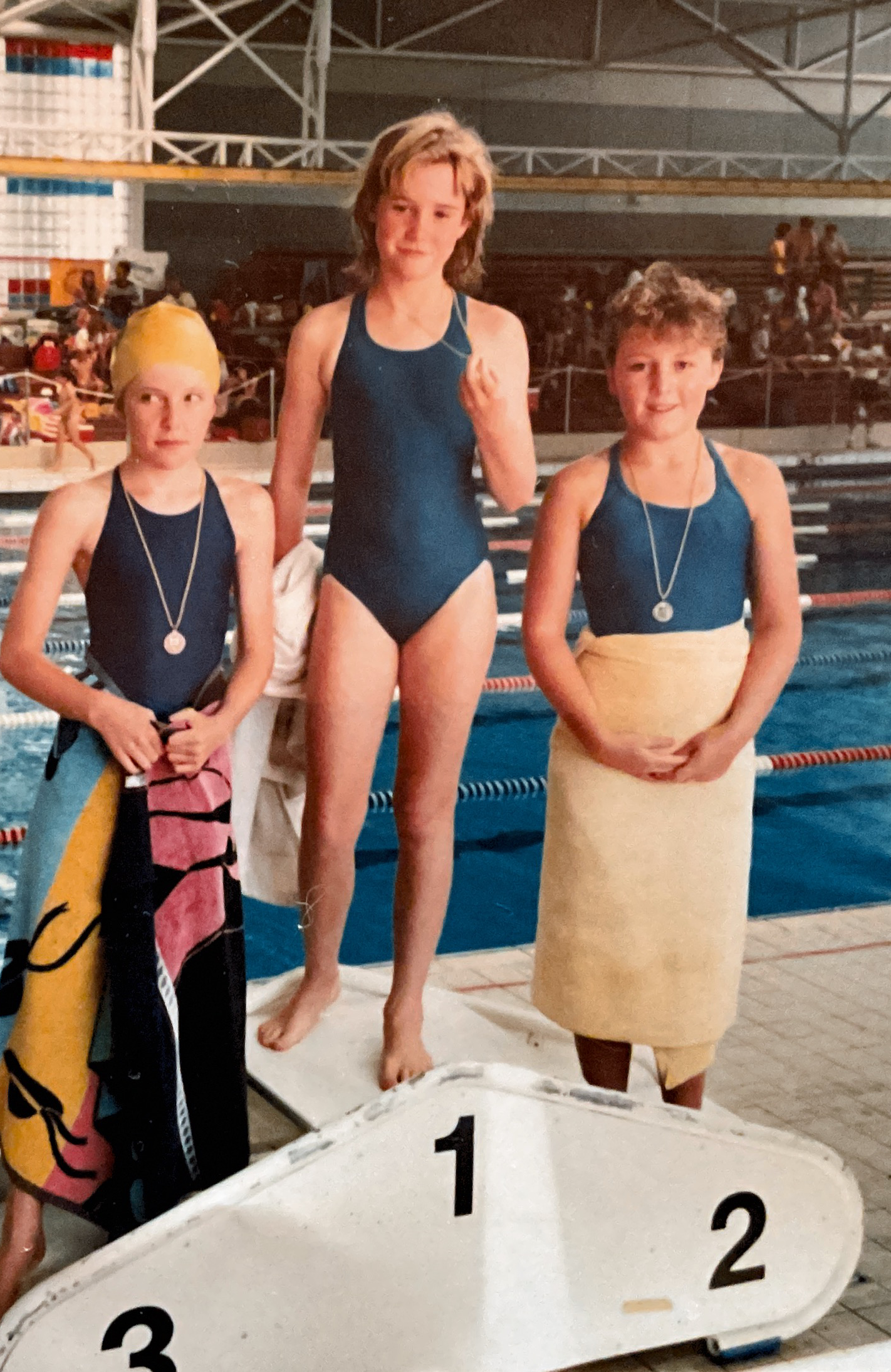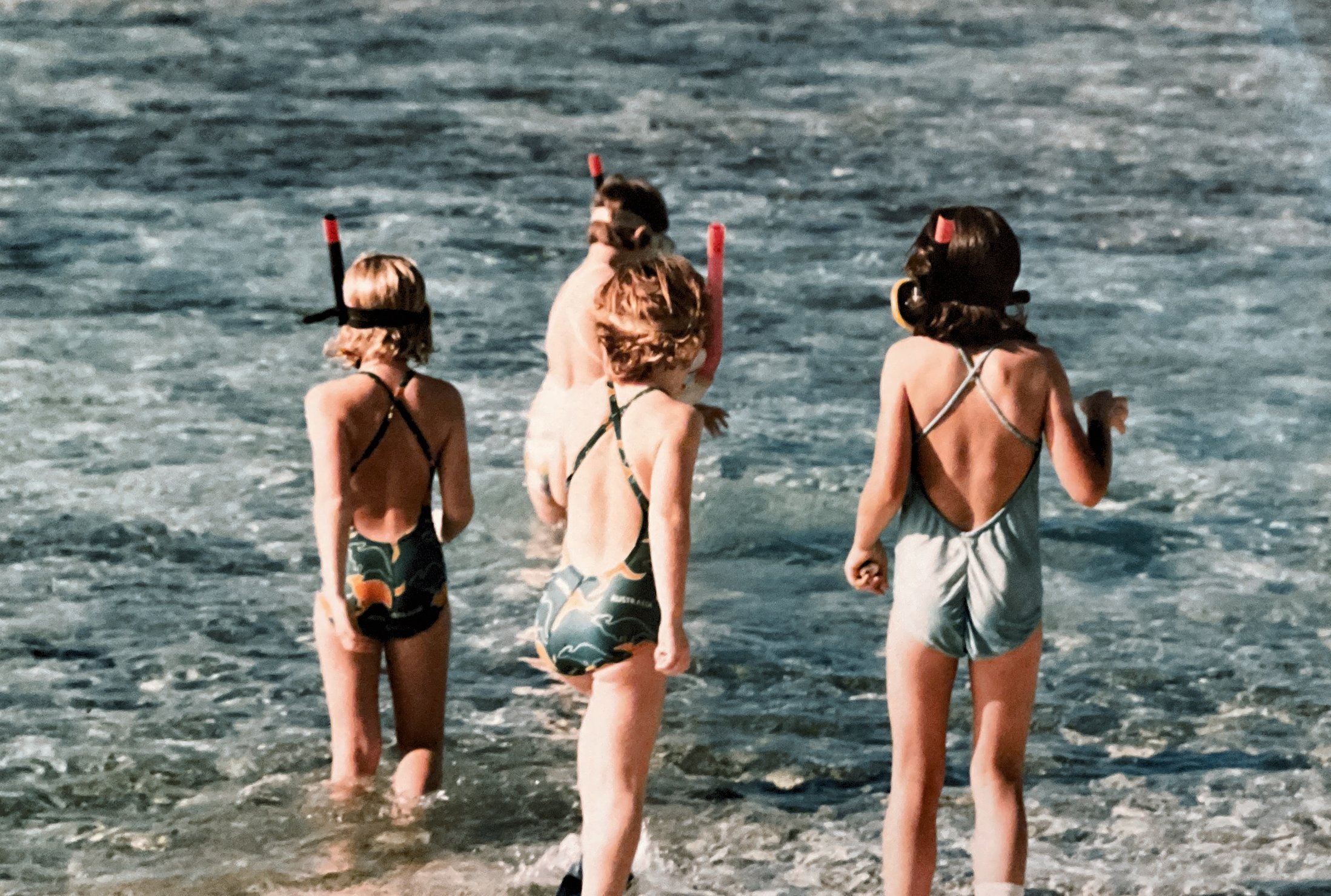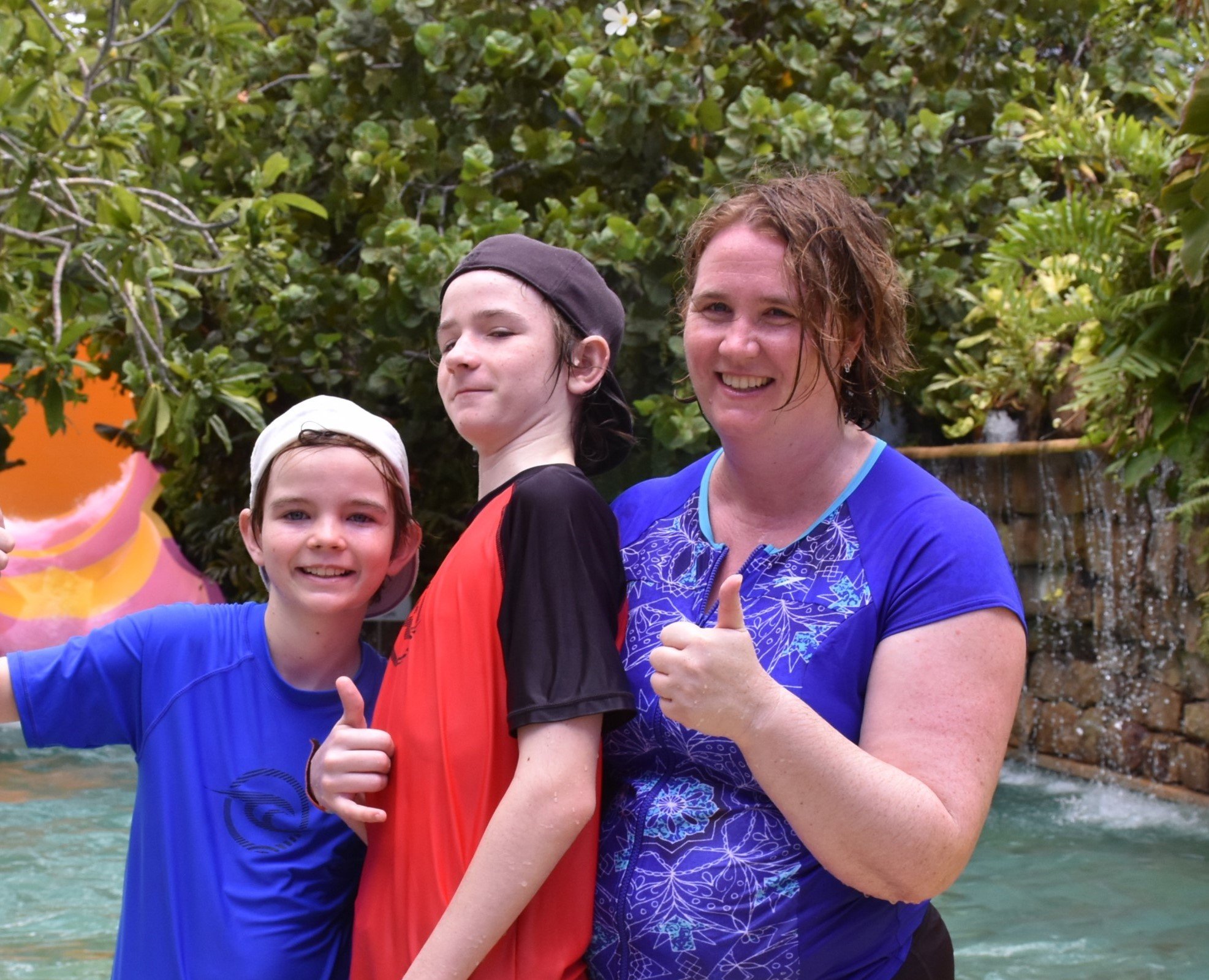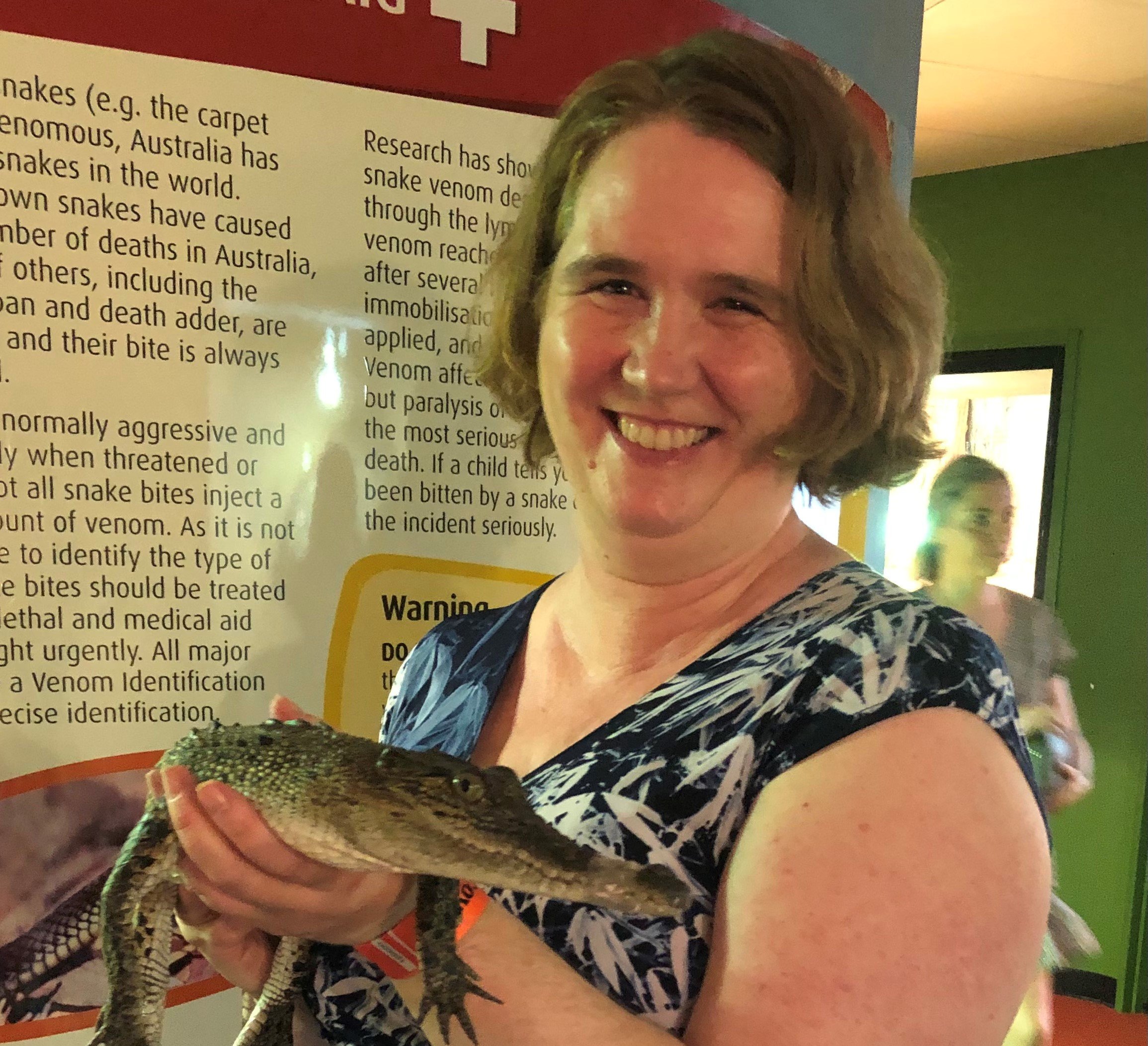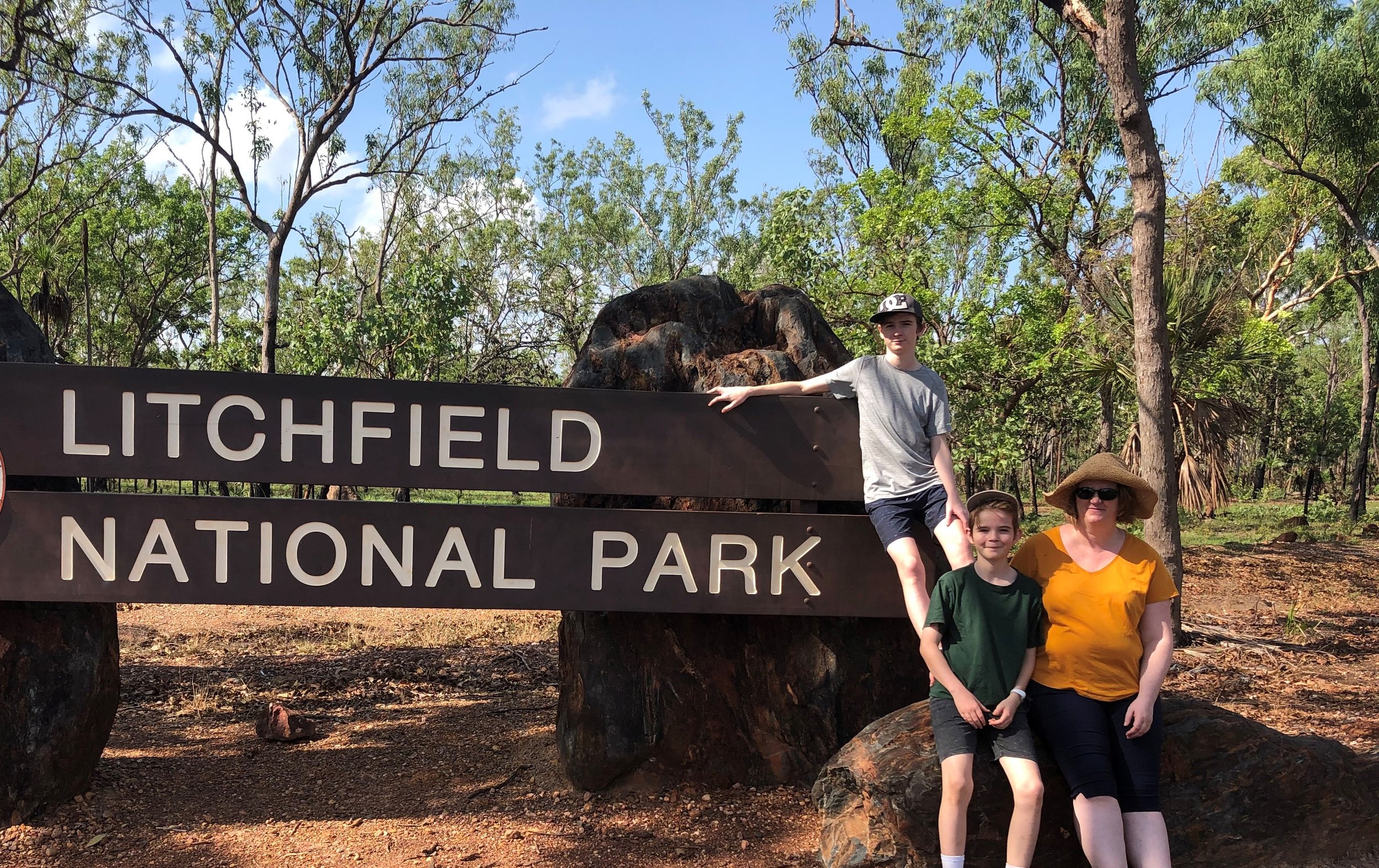Catherine Way - Darwin, Australia
Name: Catherine Way Known as: Catherine Age 44
Lives in Darwin, Northern Territory - Australia
Occupation: Primary School Teacher
Connect with Catherine: IG
Catherine - which words best describe you? Curious. Learning. Loyal. Sarcastic. Constantly reading.
Catherine, tell us about your current swimming.
For me, swimming has always been about loving the water and feeling very confident in the water. But swimming is also a great form of exercise and it is a very nice way to clear your head at the end of a day.
I reliably swim twice a week at the Palmerston Pool, an outdoor community 50m pool, because it is closest to where I live and entry is free! But ideally there would be a third swim.
I usually swim for about half an hour, which is enough time to swim around 1000m. I only started swimming laps again about six month ago, after a very long break from the pool, so it has taken me most of those months to build up to 1000m.
I swim by myself, structuring my session as a warm up, a few drills, a main set and finish with a cool down. Apart from that I like variety so I will usually do something different each time. Once a week I try to have a main set where I swim for distance, and once a week I swim shorter, faster intervals.
I don’t have a particular favourite set, but I have always liked swimming farther, rather than faster!
Do you have a current swimming goal?
My current swimming goal is to keep swimming regularly and build up my distance a little more. I might then see about joining a Masters swim squad. In the future, I’d love to try more open water swims.
Catherine where are the best places you’ve swum?
This is a tough question – I have swum in a lot of amazing places.
Top of the list is the Great Barrier Reef. I’ve been to Heron Island, Lady Elliot Island and Lady Musgrave Island.
There is so much to see, it is hard to get out of the water. Also, snorkeling or diving alongside a turtle or a manta ray for a while is about as good as it gets.
The other thing I love when swimming, and it is not something I can or need to do in Darwin, is to go swimming at an indoor heated pool in the middle of winter.
When visiting Darwin where would you recommend others to swim?
I guess swimming with wildlife is a theme. Another wonderful place to swim is Litchfield National Park. There are many waterfall and rock holes there you can swim in. My family and I like Buley Rockhole. Once swimming there, I hopped in the water and was surprised to find I was swimming with a water monitor.
Tell us about one of your proudest swimming achievements Catherine.
I can remember being very delighted and surprised the first time I swum fast enough to qualify for New South Wales (Australia) state championships. I was training towards it, but I suppose I didn’t really believe I was going to swim fast enough!
Has swimming changed your life?
Yes, I don’t think I would be the person I am today without the mindset I learnt from hours and hours in the pool as a teenager.
Things I was first taught in the pool are self-discipline, setting and achieving goals, time management, excellent memory, resilience, independence and an ability to focus on the essential. These are the skills you need to succeed in almost every other endeavor. But overall, the most valuable understanding swimming gave me was a firm belief that my achievement and my progress were not linked to my innate talents, but to my belief in myself, the effort I put into swimming and my willingness to make changes or take on feedback during practice.
Education experts talk often about the importance of mindset in learning and the difference between having a fixed mindset or a growth mindset (Carol Dweck - Tedtalk)
Students with a growth mindset believe they can improve and that putting effort into learning makes them better at a skill. Students with a fixed mindset believe their intelligence or skill level is fixed and can’t be changed. Mindset can determine a student’s willingness to take on challenges versus looking for an easy way out. Teachers can encourage a growth mindset by praising hard work and effort. For me, I know that learning to swim and then competing was what taught me that mindset is important, because in the pool even the most naturally talented person must put in bucketloads of hard work and effort to improve. And I need to credit my swimming coach because never once did I get praised for my swimming talent, I always knew that results were linked to the amount of effort I was willing to put in!
What is one, or 2, key stroke technique points you often reference when swimming?
I have a tendency to enter the water thumb first when swimming freestyle so I pay attention to make sure I am focusing on finger first entry. If I don’t pay attention to this I end up with sore shoulders. The other thing I needed to think about when I took up swimming again was relaxing and making sure I was breathing out, so I can have a full breath when I roll to the side.
Tell us a little about your early years of swimming.
My parents wanted me to learn to swim, so I had some skills for holidaying at the beach. I began swimming lessons when I was young at Deakin Health Spa in Canberra. I progressed from learning to swim to the squads in the Burley Griffin Swim Club. I swam competitively from about 10 years old until I was 16. Scott (Swim People owner and editor) was one of the great coaches I had there! I competed at NSW state and National levels, especially in distance freestyle events. Looking back, I was very lucky to have the opportunity to train, travel and compete with a group of friends and talented swimmers.
A few quick fire Q & A
1. A fun fact or 2 about yourself.
I have a Science Degree and I majored in Geology. A group of us used to enjoy swimming in whatever body of water we could find whilst on field trips, so I have swum in a lot of wild places in Australia, from Guerilla Bay to the Goodradigbee River, and the Edge of the World in North West Tasmania.
2. Prefer swimming in morning or evening, and why?
Swimming competitively means a lot of early morning training. And I still get up early every morning because this is the time of day when I do my best thinking and have the most energy. So, if I have a choice, mornings – but an after work swim is a great way to clear the head.
3. What swim equipment do you regularly use?
A decent pair of googles and a cap is usually it for me! And a swimsuit that makes me feel comfortable.
4. Finish this statement - A satisfying swim is . . .
A satisfying swim is peaceful. It is a swim with no time constraints and few people around.
And to finish.
The other satisfying part of my swimming story I haven’t mentioned is the pleasure from teaching my sons (now teenagers) to swim. I was in the water with them from the time they were 4 months old. Neither of them is a ‘swimmer’, although they both swim, but I am very grateful for the time we spent together in the pool as the grew.
The other personal note I want to add after reflecting on swimming is – I don’t know how you put up with me as a teenage swimmer. Even today, for all my talk about growth mindset, I am very contrary about accepting feedback. I always require a fair amount of reasoning and time to consider before I will change anything. I think maybe I swam distance freestyle because ‘go over there and swim a long way’ was your version of ‘sit down and shut up’! (Editor: I’m sure it wasn’t, but ???)
Big thanks for sharing your swimming story, Catherine.
Editor: I was fortunate to have Catherine in the swim club I coached in Canberra, Australia, from 1980-1993 when she recently reached out to share a few reflections on the qualities she learnt during her competitive days which have stayed with her since.



